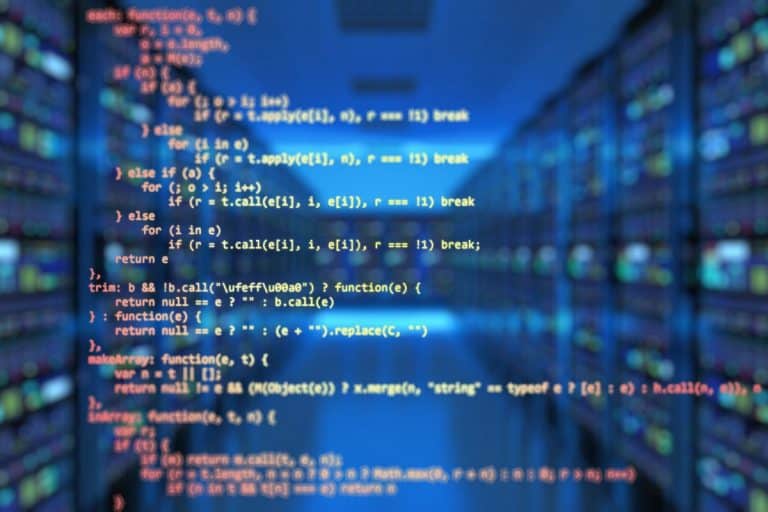
Introduction
Innovative companies are of particular interest to both strategic and private equity investors. Software is often at the heart of technology-driven companies, which is why it is important to ensure in the context of M&A transactions that the target company is fully entitled to the software in question.
A distinction must be made between individual software and standard software: Individual software is software that has been specially tailored to the needs of a company; the software can either have been programmed by the company’s own employees, or by external service providers who have been commissioned accordingly. The opposite term to this is standard software, such as Microsoft Office. Standard software is a software, which was programmed for a larger number of users, under whom the target company is only one user under many. In the following, this article will only consider individual software, since standard software is usually only examined in due diligence with regard to its license conditions.
Legal protection of software
Software is generally subject to copyright protection, although under certain conditions it may also be patentable as an invention and thus protected under patent law. This is always the case when so-called “computer-implemented inventions” are involved. A computer-implemented invention exists if device components are modified or addressed differently or if the sequence of a program used to solve a problem is determined by technical circumstances. An example of this is software that improves mechanical components, such as the keyboard, or software that optimizes the control of hard disks. However, the patentability of software is an exception. As a rule, software is only protected by copyright law, which is why this article is limited to copyright implications.
The question of the legal protection of software arises in an M&A transaction in the course of due diligence: the advisors of the purchaser examine whether the target company is actually entitled to the comprehensive rights to the software used by the target company.
Whether the target company is entitled to comprehensive rights to a software is assessed according to copyright law. In principle, the author (which is the programmer) is the owner of all rights to its copyrighted work. However, the author may grant third parties, for example his client, comprehensive rights of use to its work.
A special case exists under section 69b of the German Copyright Act if the software was programmed by an employee of the target company. Section 69b of the German Copyright Act stipulates that the employer holds all proprietary rights to those computer programs created by an employee in the performance of his duties or according to the instructions of his employer. However, in constellations in which a third party has created the software in fulfillment of an order, section 69b of the German Copyright Act is not applicable. This means that the target company only acquires comprehensive rights to the software if these rights have expressly been granted to it.
Although rights can also be granted implicitly with the commissioning, the purpose of transfer doctrine established by the German copyright law must be observed. This doctrine stipulates that the principal is only granted the rights that are required for the contractual purpose at the time the contract is concluded. The purpose of transfer doctrine is thus a rule of interpretation. As a result, it leads to a specification burden of the acquirer of the right of use: Only if the types of use are listed individually the acquirer can avoid a restriction of the types of use reduced to the purpose of the contract and not intended by him.
From a procedural point of view, this means that the party entitled to the right of use bears the burden of presentation and proof for the extent of the granting of the right of use claimed by him. Consequently, when using or commissioning third parties in the context of programming customized software, care must be taken to ensure that the types of use are expressly and individually designated when granting the right of use.
In order to acquire the most comprehensive right of use possible, the clause concerning the granting of rights of use should therefore state the purpose of the agreement and additionally specify the excent of the right of use at least (depending on the individual case) as follows:
- The right of use should be exclusive,
- it should be freely transferable and sublicensable,
- it should be unrestricted in time (i.e., irrevocable and perpetual), location (i.e., worldwide), and content (i.e., any possible commercial use)
- it should cover all currently known and currently unknown types of use, and
- the right of use should include the source code, which should be freely editable.
If the granting of the right of use has not taken place under express specification of the above points, or if no rights of use have been expressly granted, it is advisable to conclude a corresponding supplement between the programmer and the target company before signing or at the latest before closing, in which the programmer grants the target company the rights of use which have not yet been granted. If contact with the programmer is not preferred, for example because it is expected that the programmer could make the granting of further rights of use dependent on the granting of an additional fee, an indemnity against all disadvantages arising from the rights of use not being granted in full can alternatively be included in the purchase agreement.
Open Source
It should also be considered that the source code of software is usually not typed in by hand from the first line to the last by the programmer itself. Rather, programmers use third-party components. The rights of use to these are granted on the basis of the license conditions of the creator of the third-party components.
Some third-party components have been subjected to so-called “open source software license terms” by their creators. As a rule, these stipulate that any licensee may use the open source software free of charge and pass it on to third parties, even by modifying the source code, which is freely available. The open source software license terms also sometimes contain “copyleft clauses”. These are license terms that impose on users the obligation to make further developments subject to the same license. If software is created as individual software for a company, however, the free distribution and disclosure of the source code is usually not intended and can damage the business. A violation of open source software license terms can result in particular in injunctive relief, recall claims and claims for damages by the licensor.
Therefore, it should be asked in the due diligence whether third-party software, in particular open source software, has been integrated into the individual software. As a precautionary measure, a guarantee should be included in the share purchase agreement that the target company has complied with all licensing conditions of the third-party software. In addition, it must be reviewed whether the software used is subject to copyleft licensing conditions. If this is the case, the purchaser can protect itself from the negative consequences of violations of copyleft license terms by an indemnification in the share purchase agreement. Under certain circumstances, a purchase price reduction may also be considered.
